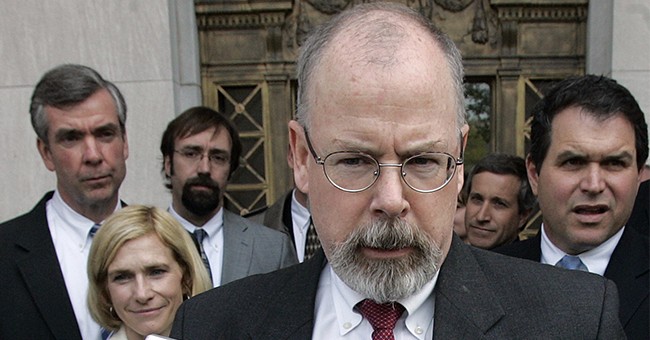
Donald Trump’s administration, from the day he entered office, has been plagued by media leaks and whistleblowers that have had the effect of shifting public focus away from what the administration is working on (and may be accomplishing) and onto character assassinations, possible politically-motivated and inappropriate phone calls with leaders of foreign nations (see impeachment), and rumors of infighting.
But anyone following the Russia collusion investigation — and Connecticut Attorney John Durham’s investigation into the origins of that probe — knows the press has been playing a role in disseminating information damaging to Trump (possibly as pawns) and his associates well before the 2016 election. Now Durham has broadened his investigation into the collusion probe’s origins and is examining leaks of potentially classified information to the press related to Trump’s short-lived national security advisor Lt. Gen. Michael Flynn.
Durham, picked by Attorney General William Barr last year to lead a review of the actions taken by law enforcement and intelligence officials during the Russia investigation, is looking into media leaks, which dominated the Trump transition period and the early days of the Trump administration, including at least one widely reported story which revealed secretive details about Flynn’s contacts with a Russian envoy, according to sources cited in a new report by the New York Times.
The report signals the breadth of the DOJ investigation is wider than previously known, as Durham’s team is looking into claims made by Republicans that Obama holdovers were intentionally trying to kneecap Trump’s presidency by weaponizing sensitive information through the media.
The Connecticut federal prosecutor is reportedly looking into a Jan. 12, 2017 article in the Washington Post by columnist David Ignatius, which said Flynn “cultivates close Russian contacts” and cited a “senior U.S. government official” who revealed Flynn had talked to now-former Russian ambassador Sergey Kislyak on Dec. 29, 2016, which was the same day President Barack Obama expelled 35 Russian officials. It is likely that this revelation, and subsequent leaks about the alleged contents of Flynn’s discussions with Kislyak, were based on classified information. Ignatius also raised the possibility that Flynn had violated the Logan Act, a rarely enforced law, which former Deputy Attorney General Sally Yates and other Obama DOJ holdovers at least considered using against Flynn. Ignatius said he wanted answers on those issues about Flynn to avoid a “Shakespearean tragic ending” for Trump’s presidency.
Another article in the Washington Post also noted details about Flynn’s conversations with Kislyak “citing ‘nine current and former officials’ who were in ‘senior positions at multiple agencies at the time of the calls’ and who ‘spoke on the condition of anonymity to discuss intelligence matters.'”
Flynn, who pleaded guilty to lying to FBI investigators about his conversations with Kislyak, has been fighting to have his case dismissed after filing to withdraw his guilty plea. Flynn’s lawyer, Sidney Powell, has maintained that the former Army Lt. Gen. was “set up” and “framed” by the FBI.
“Since August 2016 at the latest, partisan FBI and DOJ leaders conspired to destroy Mr. Flynn. These documents show in their own handwriting and emails that they intended either to create an offense they could prosecute or at least get him fired,” Powell has said. “The government’s misconduct in this case is beyond shocking and reprehensible. It mandates dismissal.”
While Powell tackles the behavior of the FBI during the investigation of Flynn, Durham is apparently looking at their behavior as it relates to using the press to convince the public that Flynn was guilty before he was ever charged.
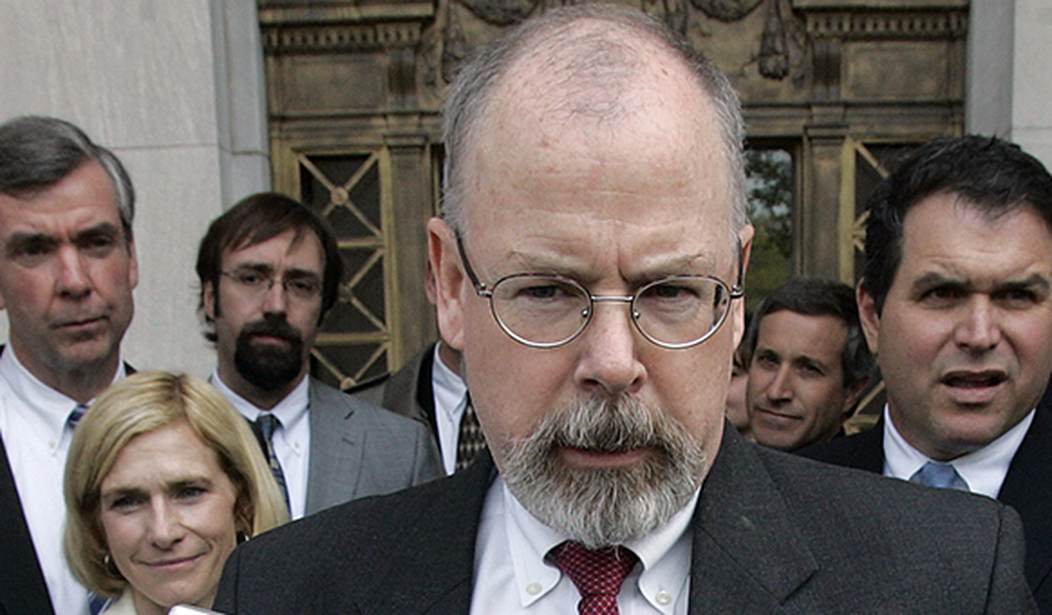



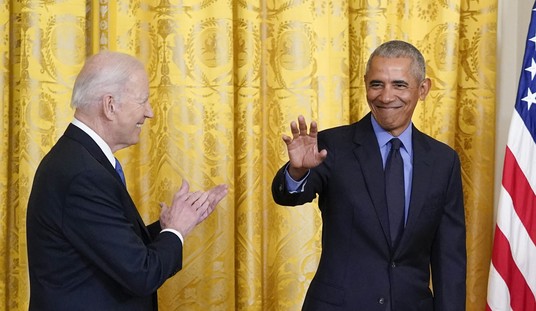



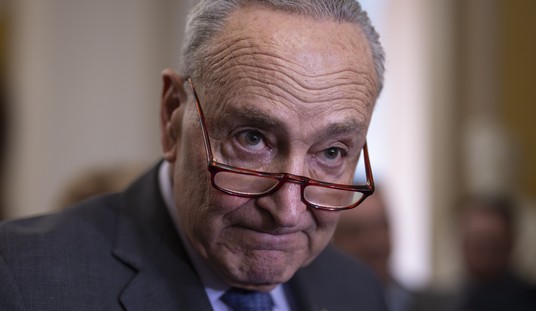

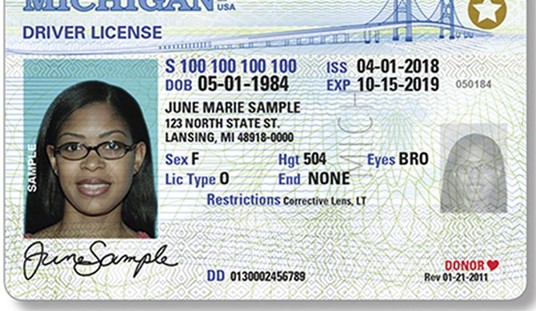

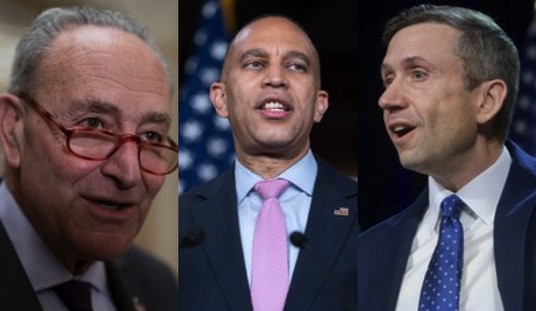
Join the conversation as a VIP Member